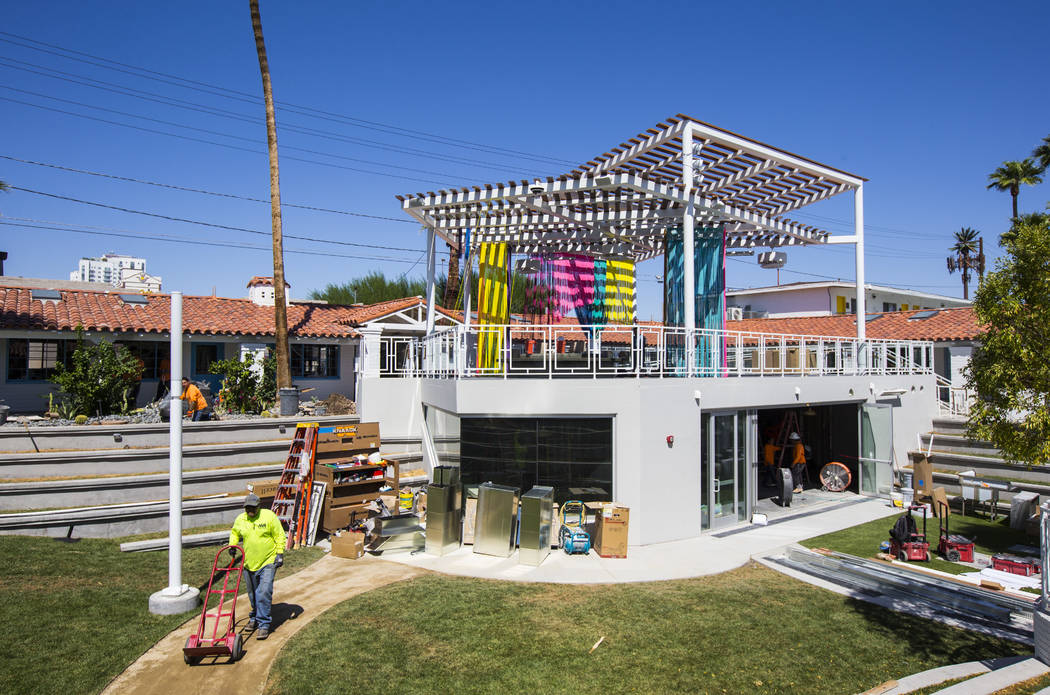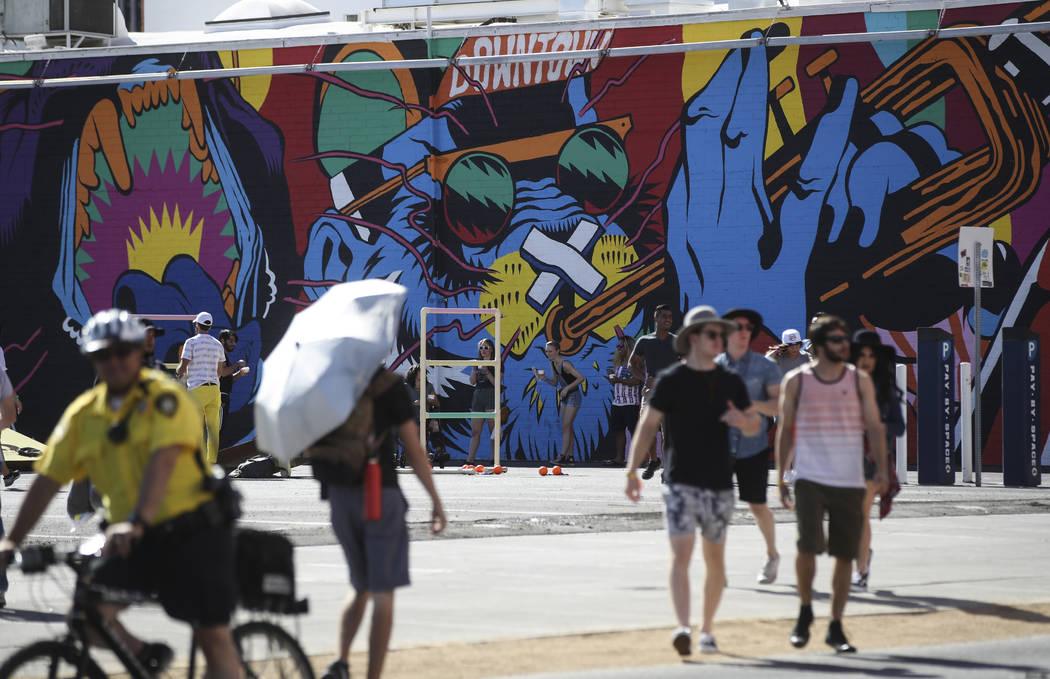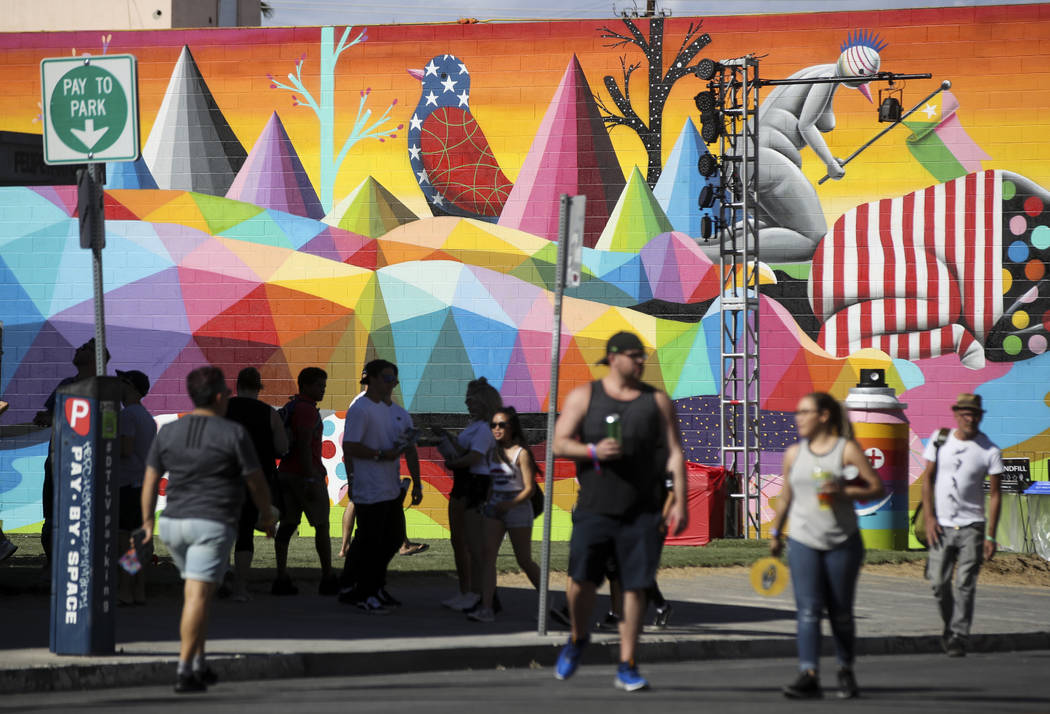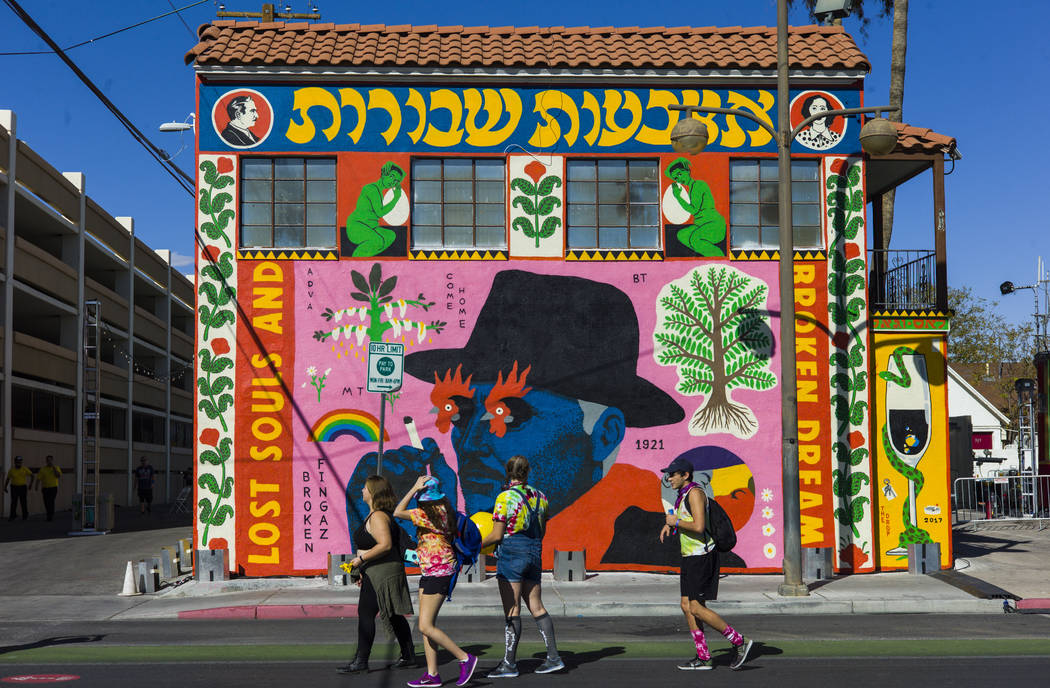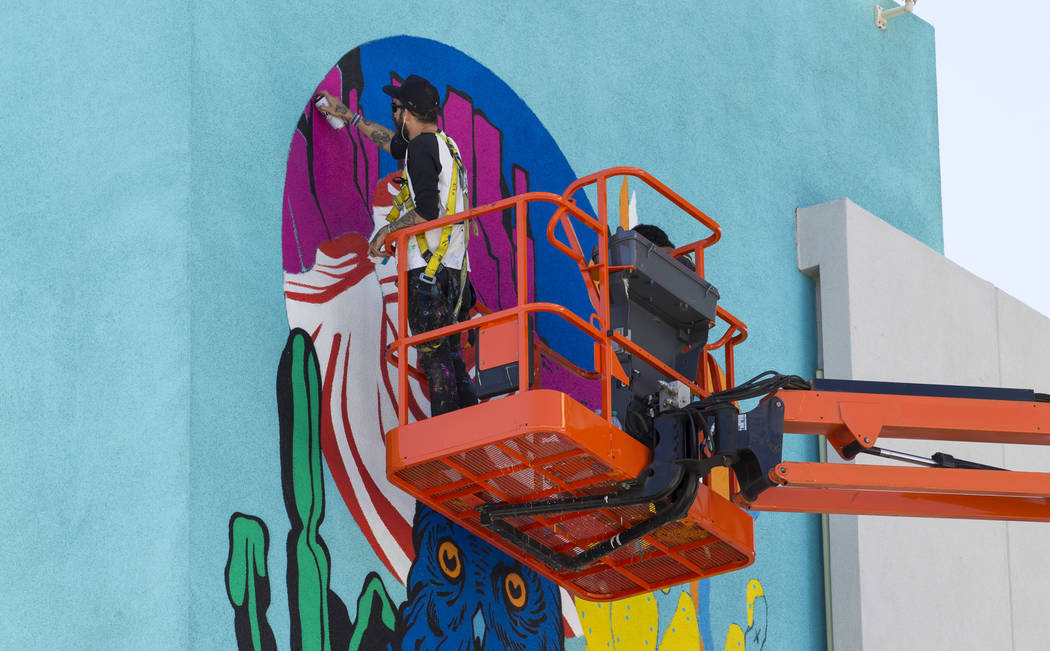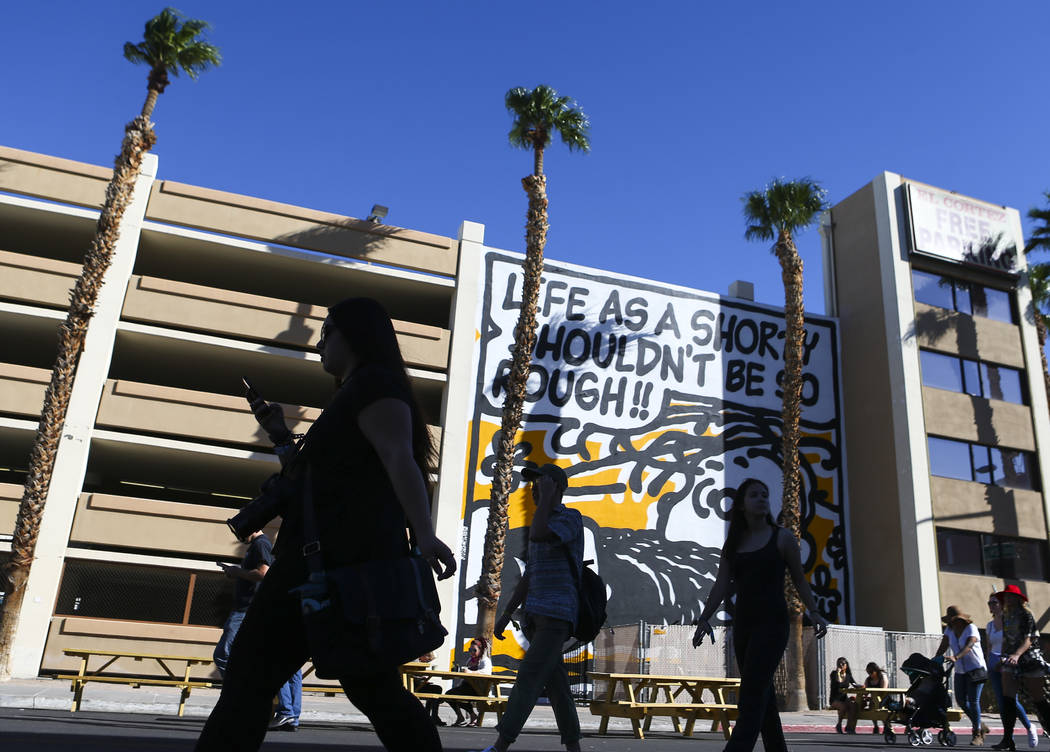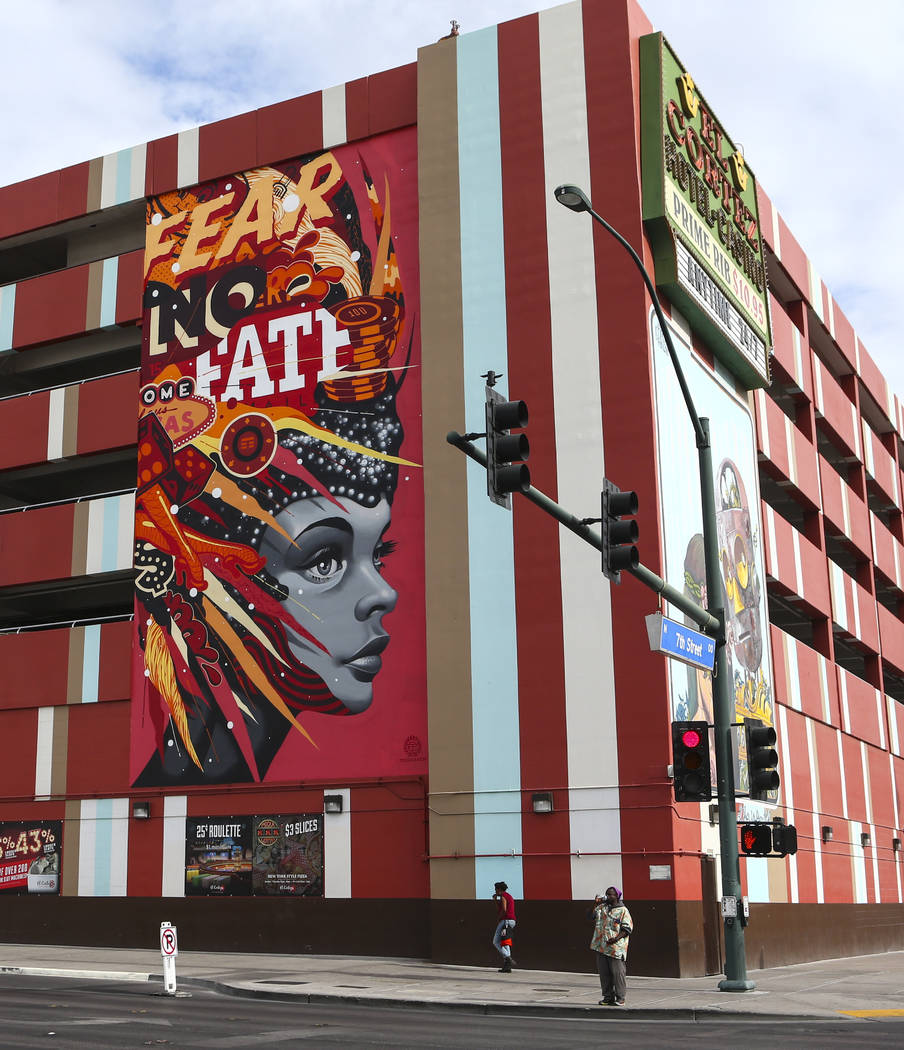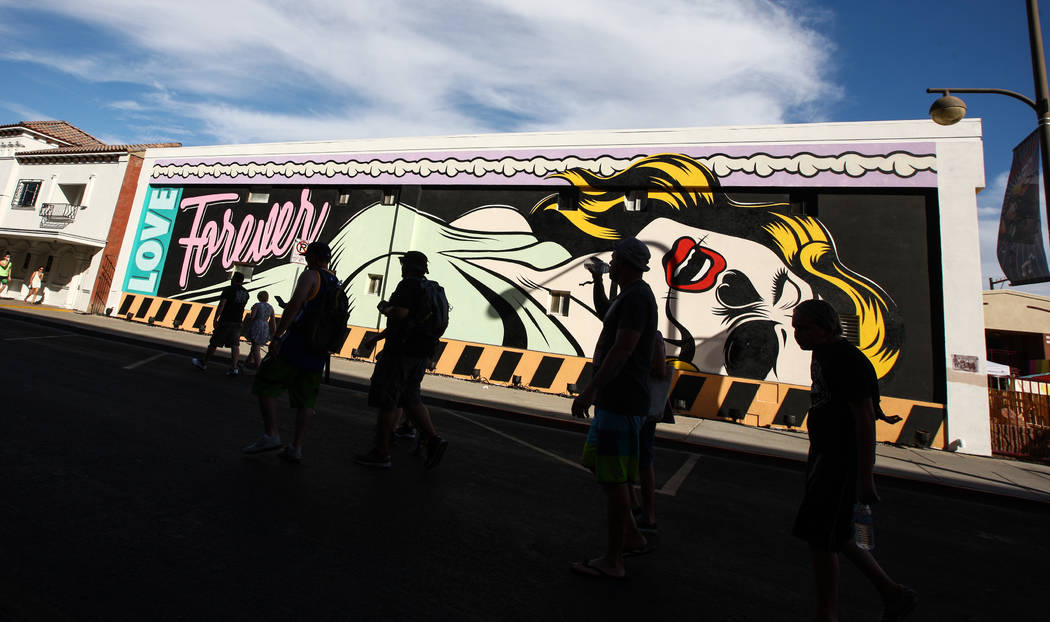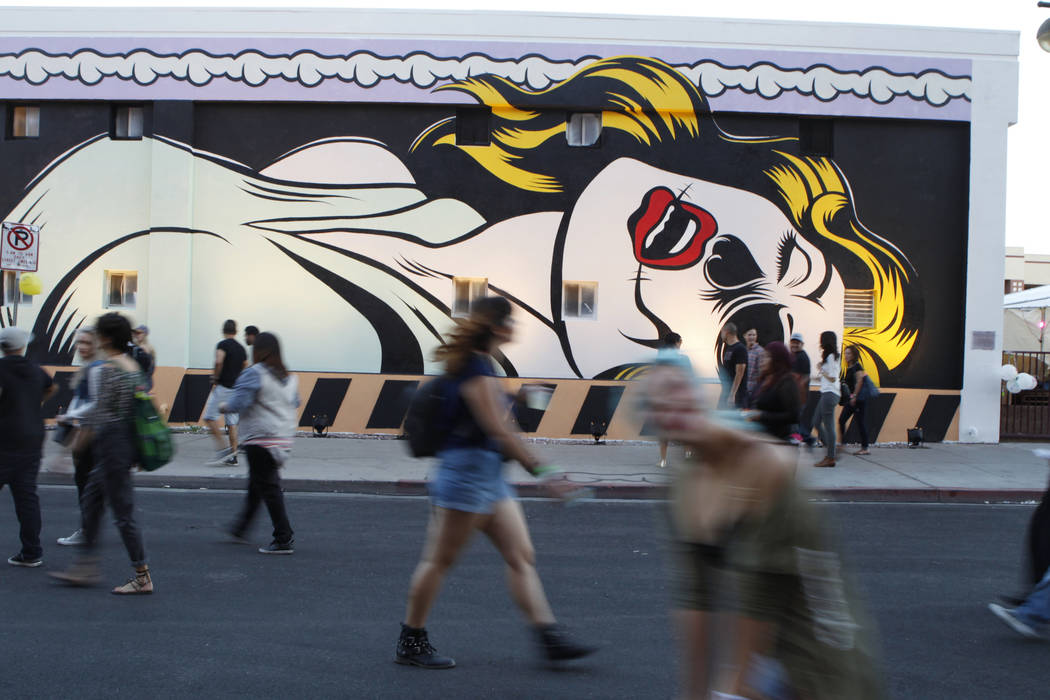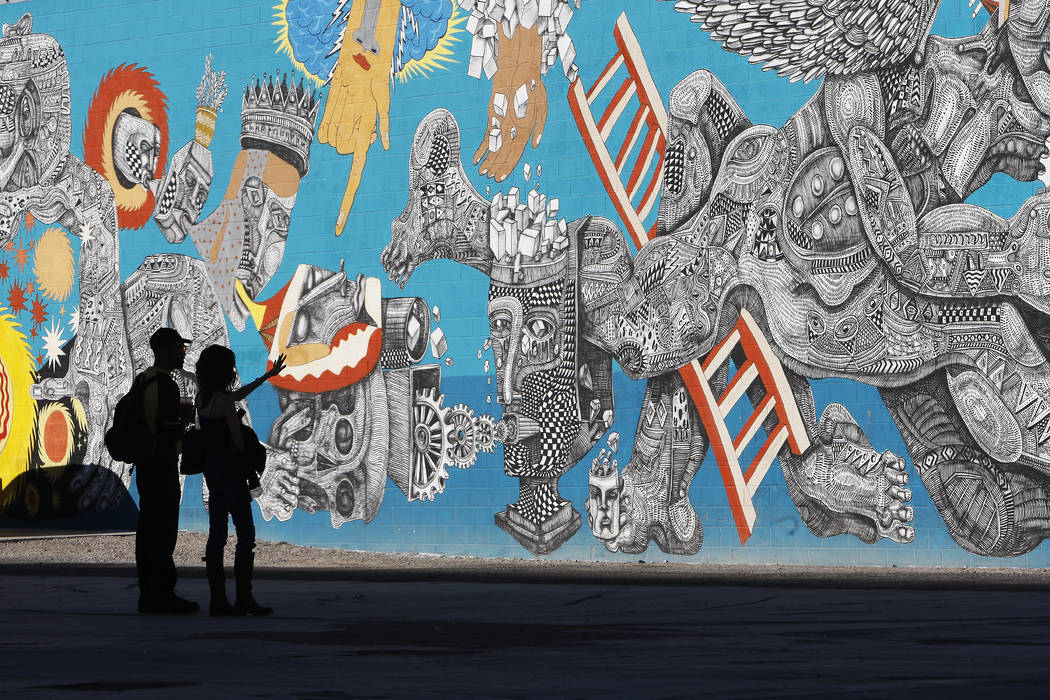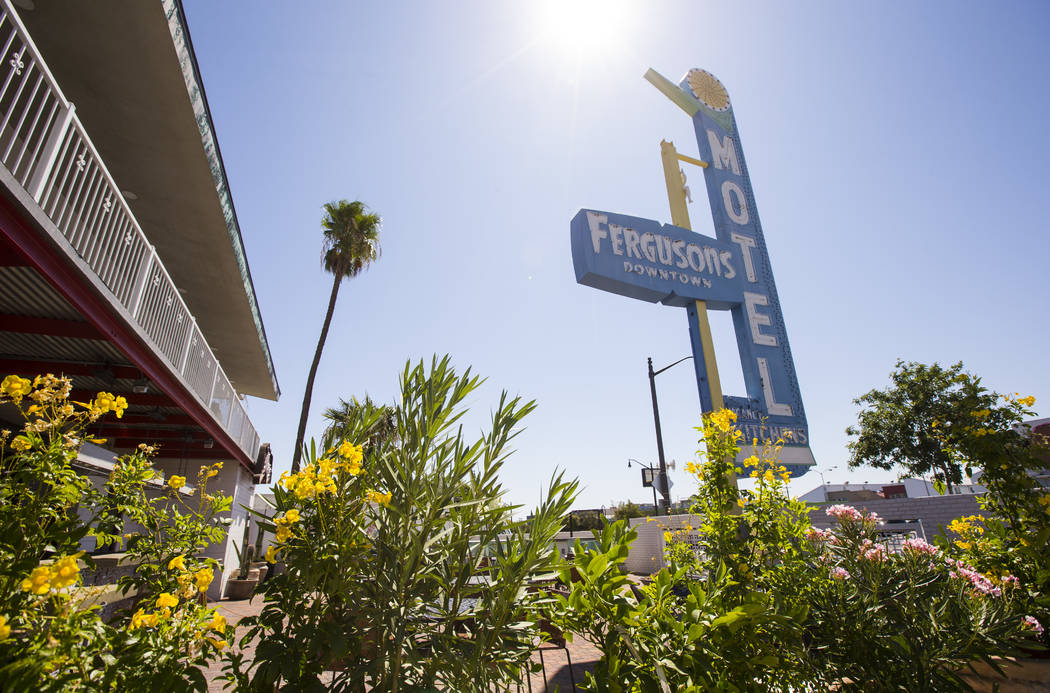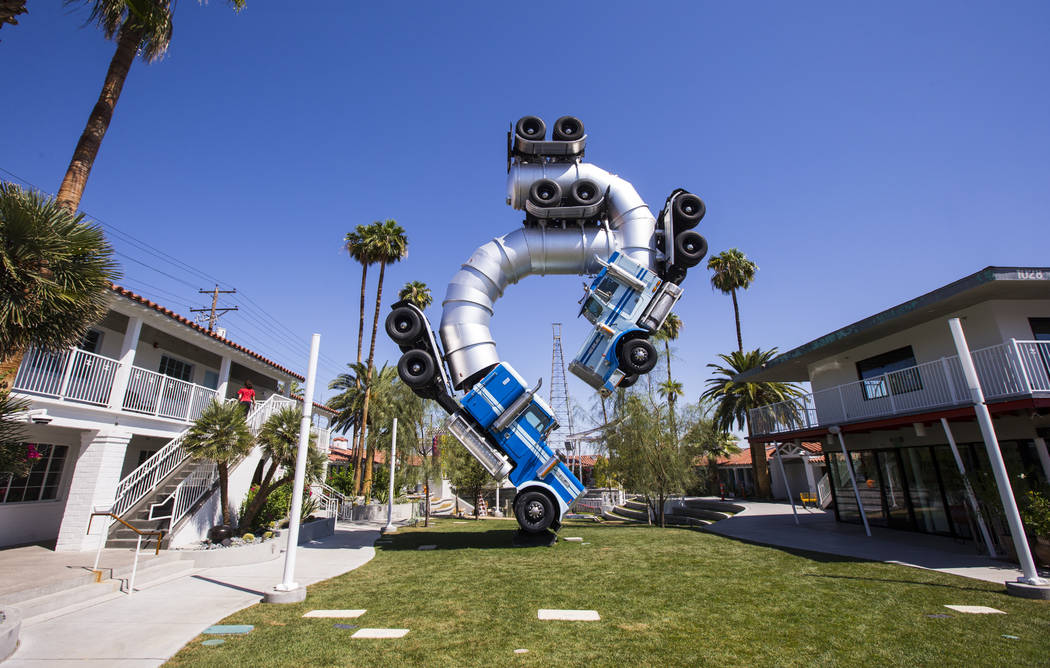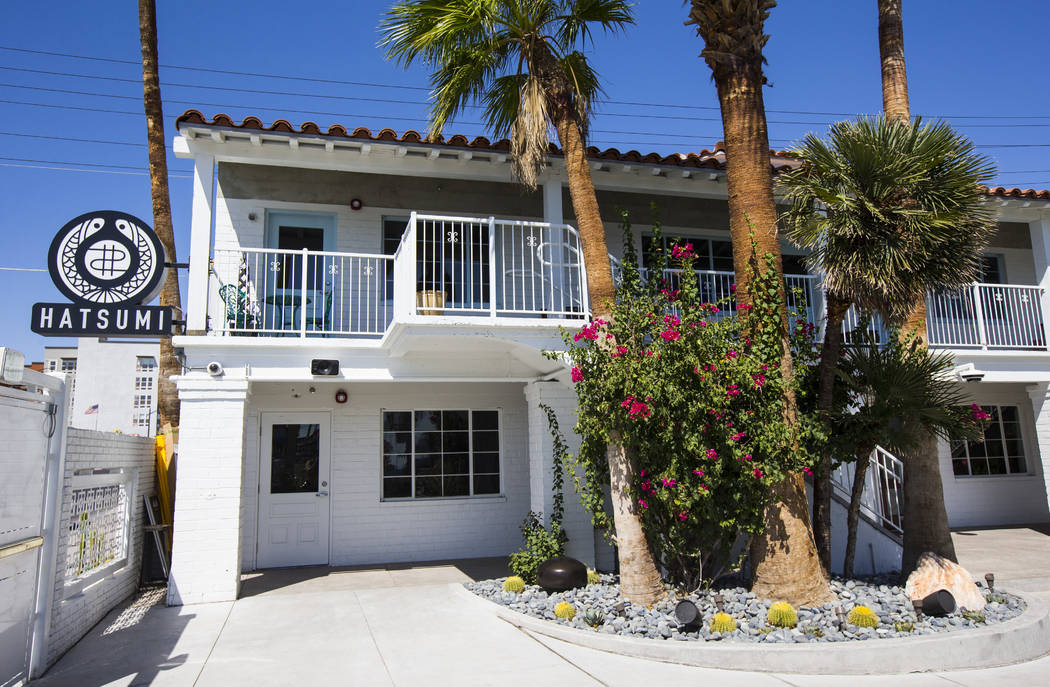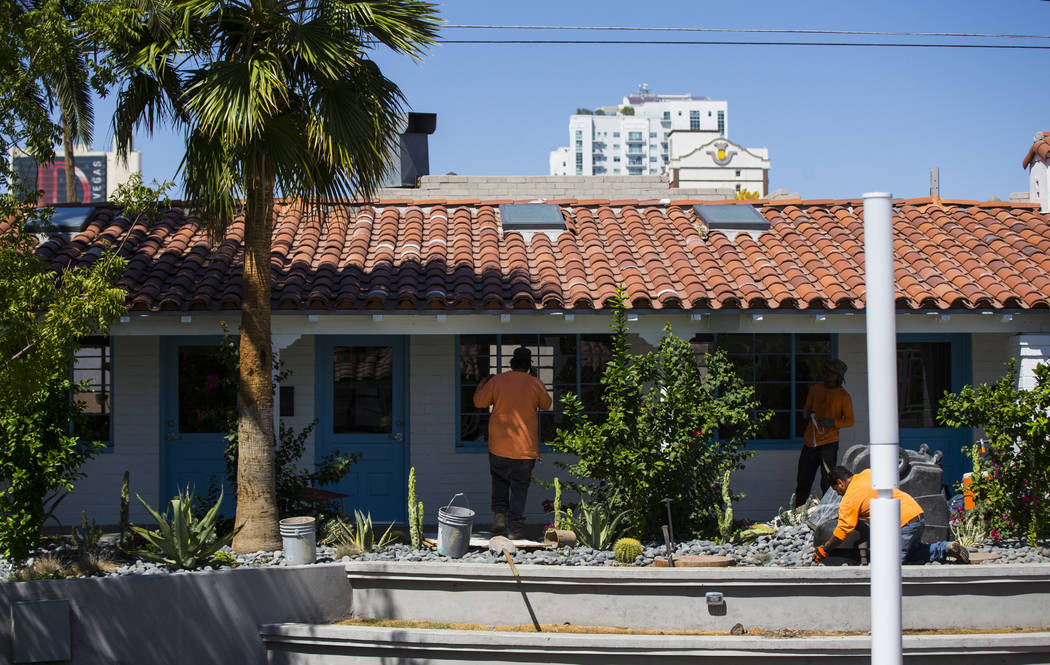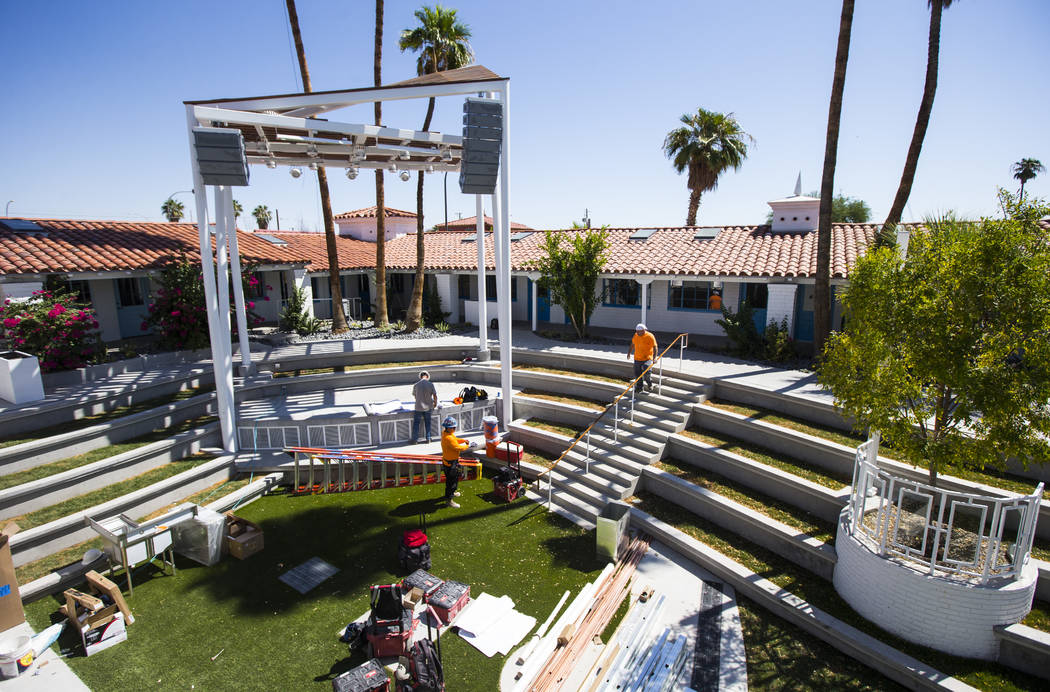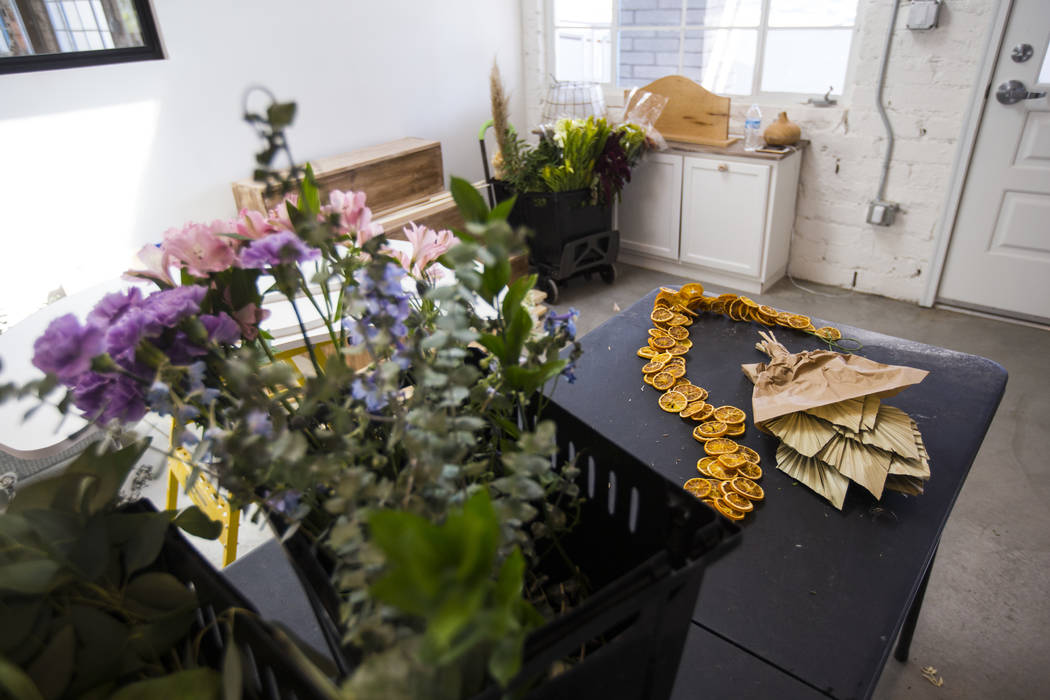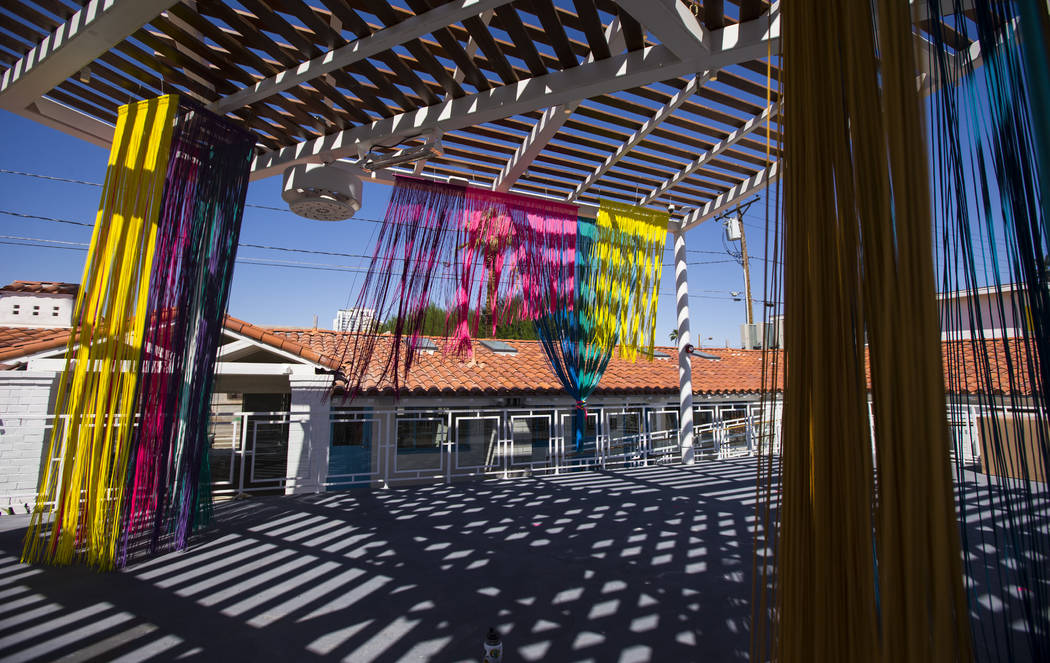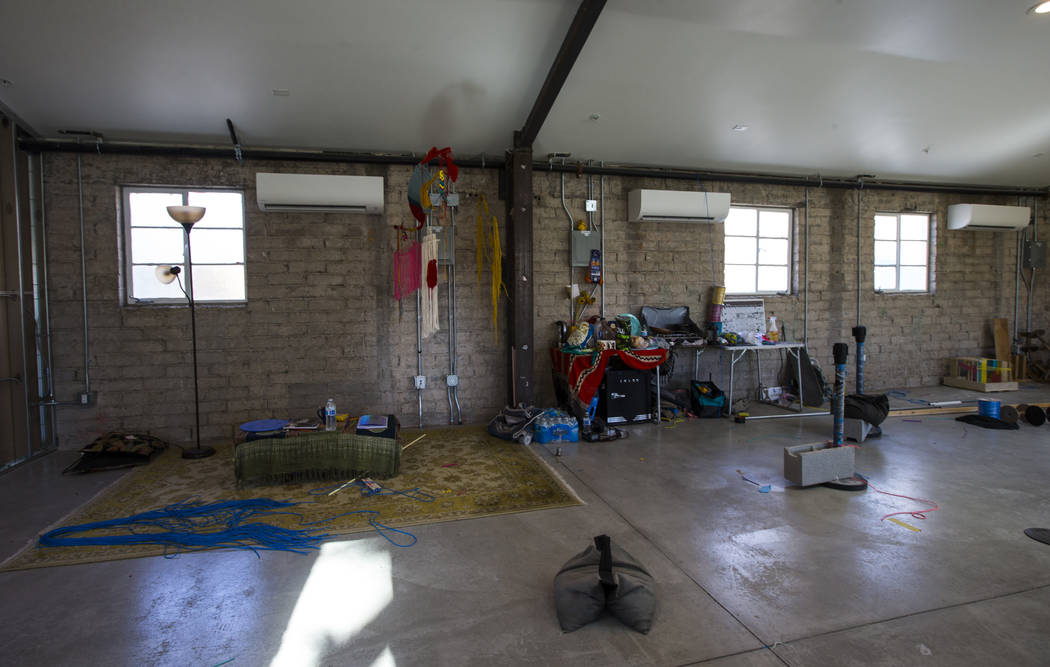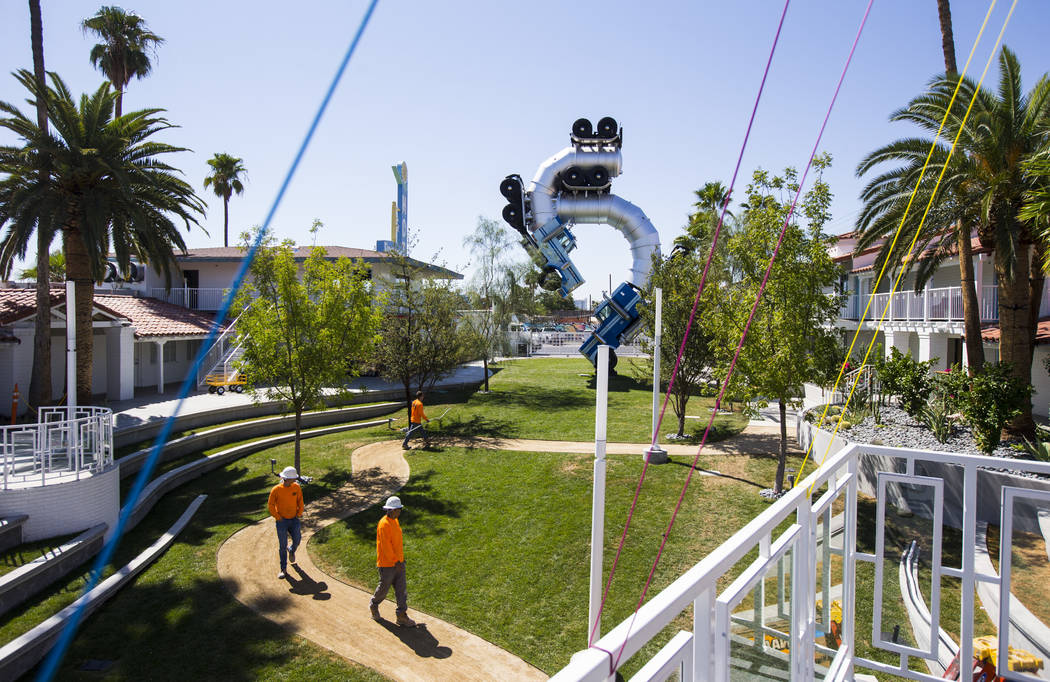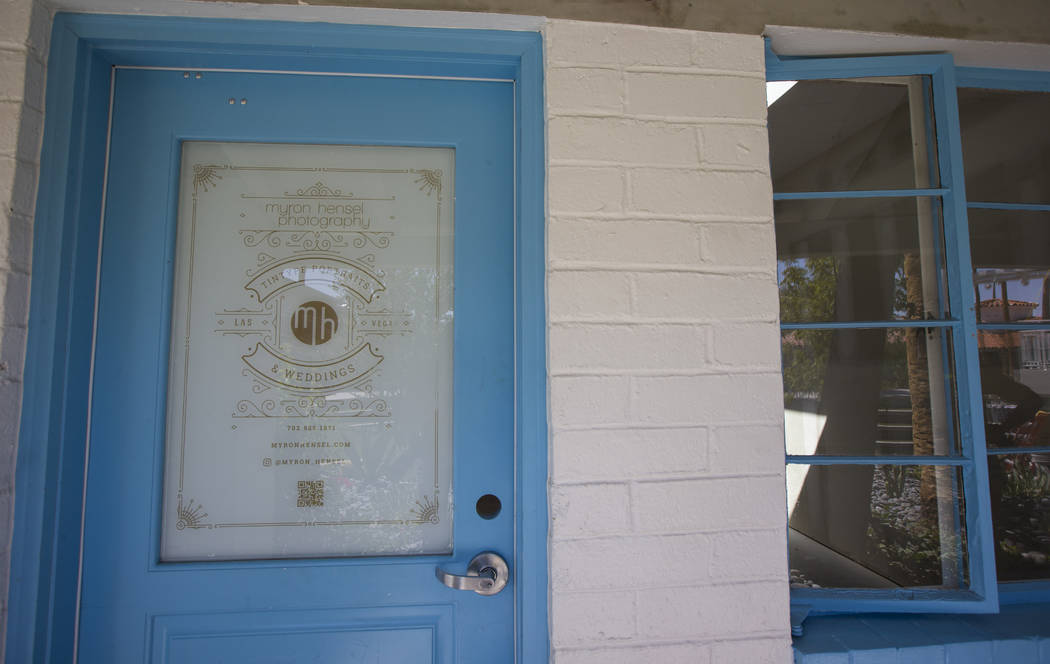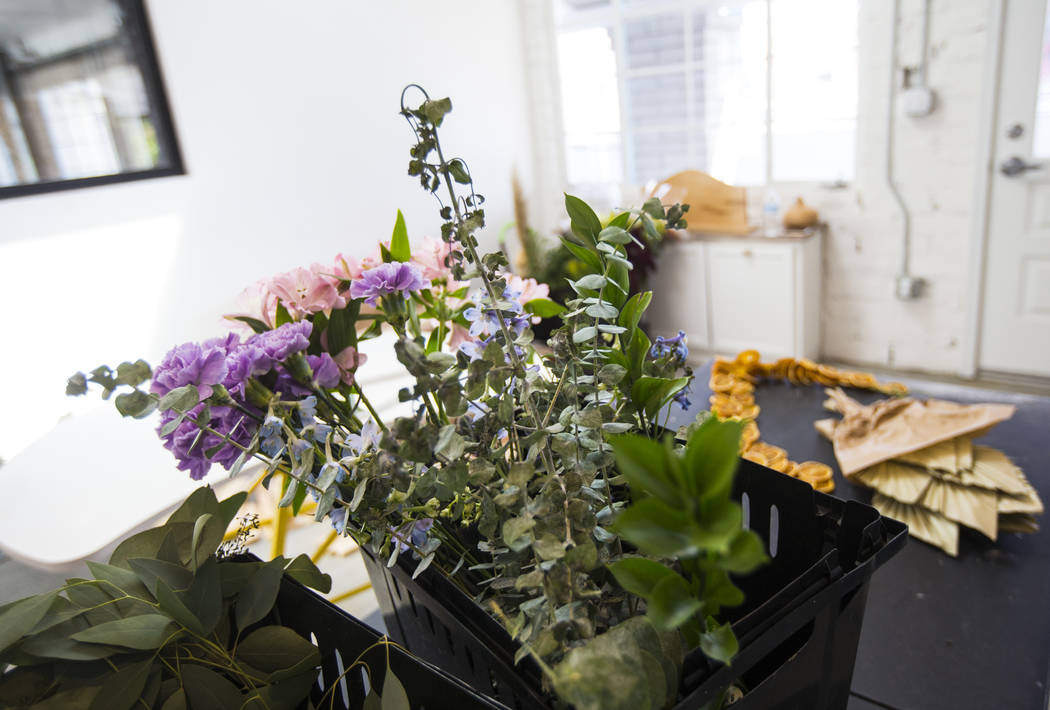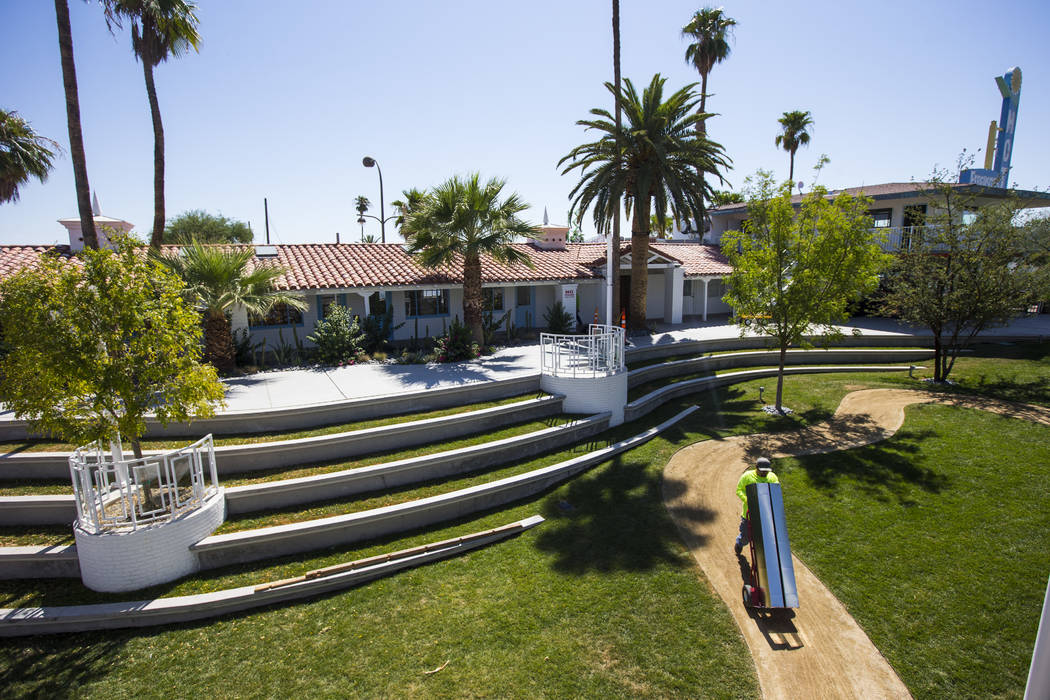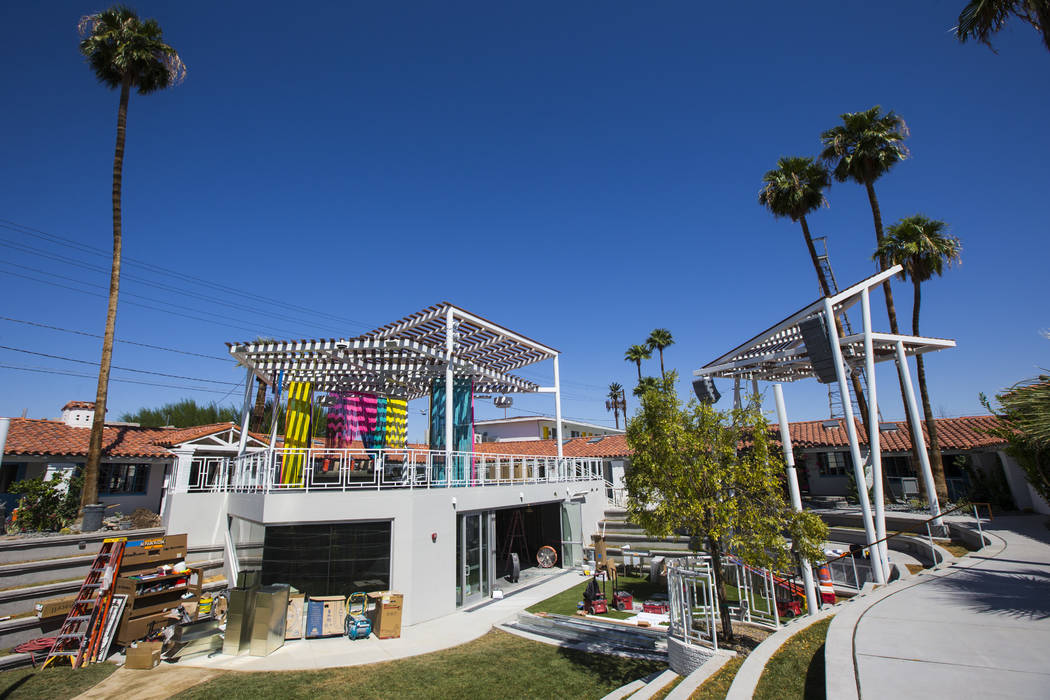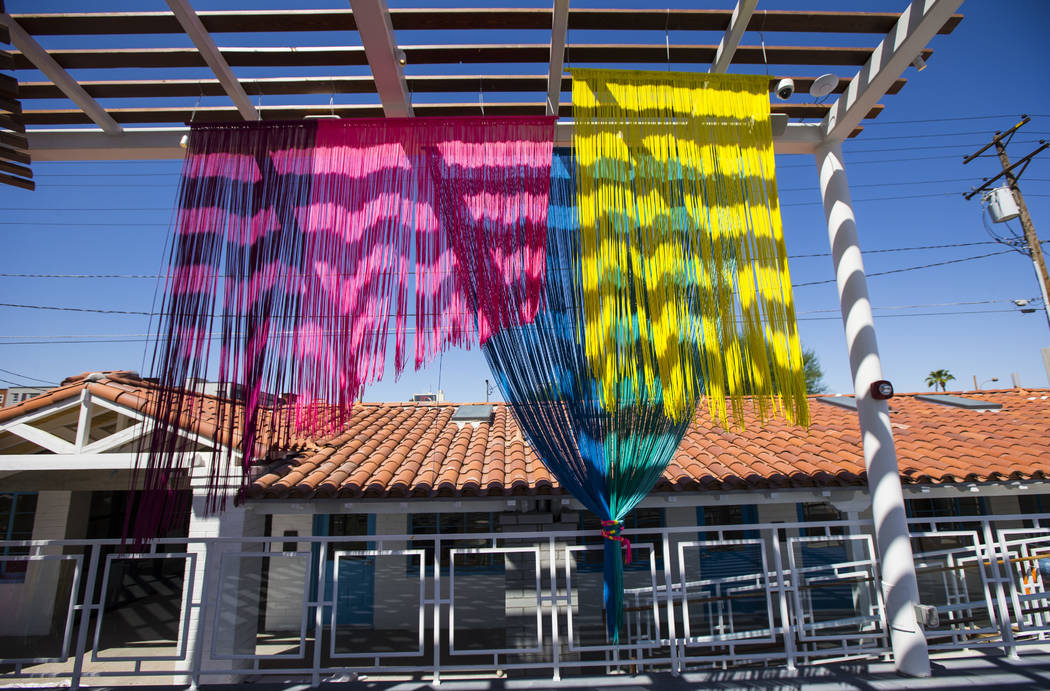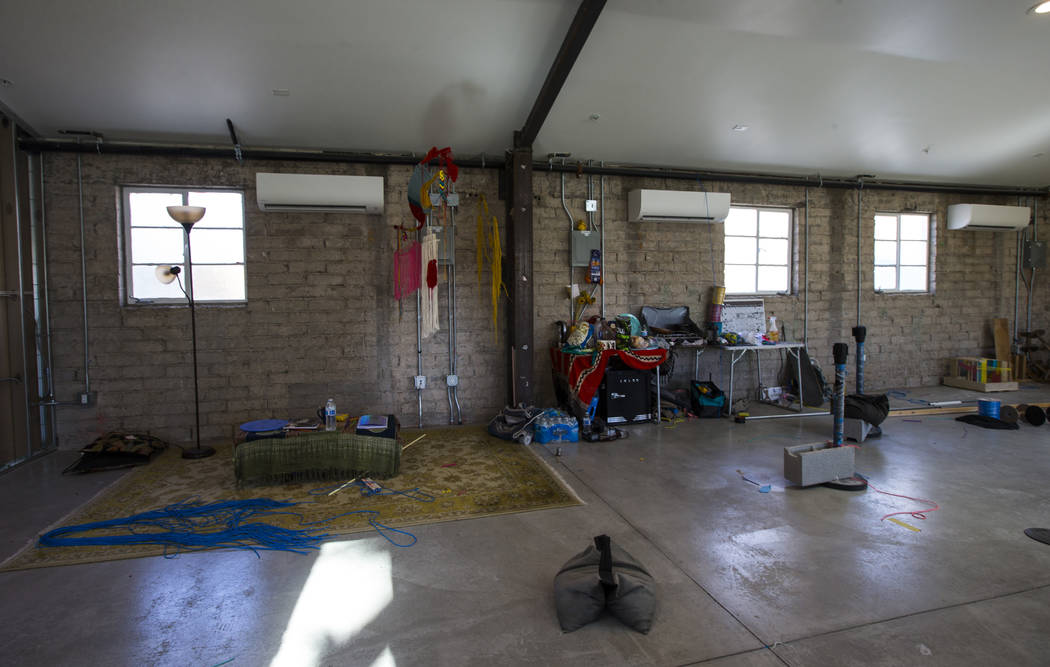Life is Beautiful fest has helped transform downtown Las Vegas
In the shadow of a friendly alpaca named Marley, the Neon Cactus grows.
Negar Hosseini peers into an empty room with a full smile, eyeing the spot where she’ll soon relocate her business.
On the second floor of Fergusons Downtown, the former hotel being transformed into a multipurpose retail and residential space, the suite is barren now but will soon be filled with vintage clothes and handmade stained-glass jewelry. Hosseini began selling her wares 2½ years ago, pop-up style, at the open-air Market in the Alley across the street.
Now she’s quit her day job and is about to launch Neon Cactus as a brick-and-mortar store, one of nearly two dozen shops in front of the property, which features living quarters in the back currently being patrolled by the aforementioned pet alpaca.
Neon Cactus’ soft opening will take place next weekend, during the return of the Life is Beautiful music and arts festival, back for its seventh edition Friday.
Yes, the fest brings in a bevy of fans and bands over three days, with more than 195,000 people expected to attend, pumping tens of millions of dollars into the local economy. But for plenty of downtown businesses and supporters alike, the festival’s impact endures beyond one weekend every September.
It’s fitting, then, that Hosseini is wearing a Life is Beautiful T-shirt on this day: She credits the fest for abetting ventures like hers by shining a light on an area that has become a creative and cultural hot spot.
“It helps incubate these businesses,” Hosseini says. “It brings people with a common interest in music and culture and immerses them into a bit of our city life. It allows people to come from all over the world and take away something that represents our city, that’s made by a local maker, really get that connection with our community.”
It’s not just the crowds the fest draws; it’s also about changing the perception of a part of town that, a decade ago, had more vacant parking lots than crowded nightspots.
“To my business, Life is Beautiful paints a big picture for downtown Las Vegas that, a lot of times, most people don’t get to see, not only from a local’s perspective, but a tourist’s perspective,” says Cory Harwell, owner of downtown’s Carson Kitchen. “I think Life is Beautiful puts us on a bit of a larger stage. The big-picture perspective is that we realize a positive impact throughout the course of the year, not just the week of Life is Beautiful.”
The economic revitalization of downtown has been driven by a number of factors, among them the efforts of the Zappos-affiliated Downtown Project, the Downtown Las Vegas Events Center growing into a thriving concert venue, the continued development of the nearby Arts District, the Neon Reverb music series and the re-emergence of a renovated Bunkhouse Saloon.
But Life is Beautiful has played as prominent a role as any.
“It puts a stamp on downtown being a place to check out,” says Dan Coughlin, owner of popular eatery Le Thai. “Before it was a little more dangerous.
“It’s a win-win for us at Le Thai,” he adds. “We want to brag about downtown, and LiB gives us something to brag about.”
A timely turning point
Life is Beautiful CEO Justin Weniger glances out a window at LiB’s downtown offices and chuckles at the thought of motorized spectators zooming by.
“There will be people on Segways doing art tours,” Weniger says somewhat incredulously, referencing the interest in the many murals his fest has commissioned over the years. “I didn’t think that would happen.”
It might not have.
Consider Life is Beautiful’s start: After losing $10 million over its first three years, the fest found itself at a crossroads heading into 2016.
Its future was anything but a given.
Weniger and company had gone big up to that point, bringing in superstar headliners such as Kanye West, the Foo Fighters and Stevie Wonder.
But big acts command big dollars, and even though attendance was good and getting better — growing from 60,000 in 2013, when it debuted as a two-day fest, to 104,000 over three days in 2015 — it wasn’t enough to make the event profitable.
Besides, Southern Nevada had seen one festival fail to survive despite consistently bringing in an impressive lineup.
“One of the best music festivals to ever come to Las Vegas was Vegoose,” Weniger recalls of the event that ran from 2005 to 2007 at Sam Boyd Stadium. “You think of their lineups — Daft Punk, Rage Against the Machine, Dave Matthews, The Killers on a small side stage — it was incredible what they did. They brought like 30,000 or 40,000 people in from out of market, but they got no local support on it.”
Weniger realized, then, that to make Life is Beautiful last, he’d need to build it up from a grassroots level, cultivating a strong homegrown fan base in addition to out-of-towners.
“We started with a hyper-focus on the locals,” he says.
This meant a heightened emphasis on convenience, letting attendees go in and out of the event three times each day if they need to take a break (VIP pass holders get unlimited re-entry), letting young kids in for free, offering a wider range of food and drink options than a typical festival, beefing up comedy offerings and generating social-media buzz with Instagrammable art installations and selfie-friendly attractions.
Curating the music roster also required a shift.
Striking a different chord
Don’t worry, there will be no shortage of face-tattooed rappers sporting gold teeth and gold records.
Life is Beautiful still attracts big-name acts, with inked-up MC Post Malone joining rockers The Black Keys and hip-hopper Chance the Rapper as this year’s headliners.
But, beginning in 2016, there was more emphasis on the depth of the roster as opposed to a top-heavy bill with veteran festival headliners.
“The biggest thing is the balance of the lineup,” Weniger explains. “If you look down that center column (of the concert poster), we want it to be deep all the way through.”
They also focused on being ahead of the curve, topping bills with artists such as J. Cole, Chance the Rapper and Major Lazer when they were just graduating to festival-headliner status. Simultaneously, they continued to build upon a solid track record for bringing in future stars such as Twenty One Pilots, Halsey, G-Eazy and Lizzo. That combination has led to a younger crowd than in LiB’s early years.
“Over the last two years, I think the overall clientele, the energy, the magnitude has changed dramatically,” Harwell says. “The festival skews a little younger. It’s a little bit more of an energetic crowd. For a few years, the music and the festival skewed a little bit older, it was kind of more my crowd, and those guests typically didn’t spend as much.”
The new approach paid off: 2016 was a turning point.
Attendance topped 137,000 for the weekend, the festival’s largest draw up to that point, and the event injected more than $43 million into the local economy, a 25 percent increase from 2015, according to a study conducted by R&R Research.
“That year everyone really came together,” says Lauren DelFrago, Life is Beautiful’s festival manager. “I think it just took a few years of getting into the flow of it for everyone to have that buy-in and say, ‘This is happening and we’re here to support and work together.’
“I think that’s really what it was, seeing us becoming a staple in downtown, from not only a locals’ standpoint of this being the festival in everybody’s backyard, but also everybody coming from out of state,” she adds. “Now we had the coverage of becoming a national music festival. It put us on the map, and I think everyone was like, ‘All right, they’re here to stay.’ ”
A lasting impression
Last year, this was all asphalt. Now there’s grass and trees where the blacktop used to be.
For the first time, the new retail component of Fergusons Downtown, which faces Fremont Street, will be up and running during Life is Beautiful, its two levels of shops lining a verdant foyer.
“It’s like our big stage. It’s our show,” says Jen Taler, co-founder and creative strategist for Fergusons Downtown and Market in the Alley. “It’s our time for the local community to show the rest of the world that we are way more than what’s happening on the Strip.”
The Fergusons complex is a visual reminder of just how much has changed, a hive of gourmet Japanese cuisine and craft soap vendors in an area where, not long ago, plenty of folks would be wary of treading after sundown.
“I think it’s been really transformative for downtown in so many different ways,” says Ally Haynes-Hamblen, director of cultural affairs for the city of Las Vegas. “I think it’s done a lot to really establish downtown as a place where people can stroll around and discover beautiful art, but also show the community here that there is a lot to be proud of downtown.”
Of course, not everything that comes with Life is Beautiful is positive: With 18 city blocks shut down during the event, commuting becomes challenging for anyone living in or around the festival footprint.
As the fest continues to grow, so do complaints from those whose daily routines it interrupts.
But Weniger hopes the lasting impression is of a more beautiful downtown.
“I don’t think the festival would have the kind of success if the purpose was just to do another music event in town,” he says. “There’s plenty of live music and entertainment happening in Vegas. The idea was that we could do something that would actually change the infrastructure of the city.
“There’s things that are happening on a consistent basis downtown that six years ago were unthinkable,” Weniger continues. “I don’t think we’re responsible for that; we play a part in it. I think our part is just showing people, ‘This is what it could look like.’ ”
Contact Jason Bracelin at jbracelin@reviewjournal.com or 702-383-0476. Follow @JasonBracelin on Twitter.



